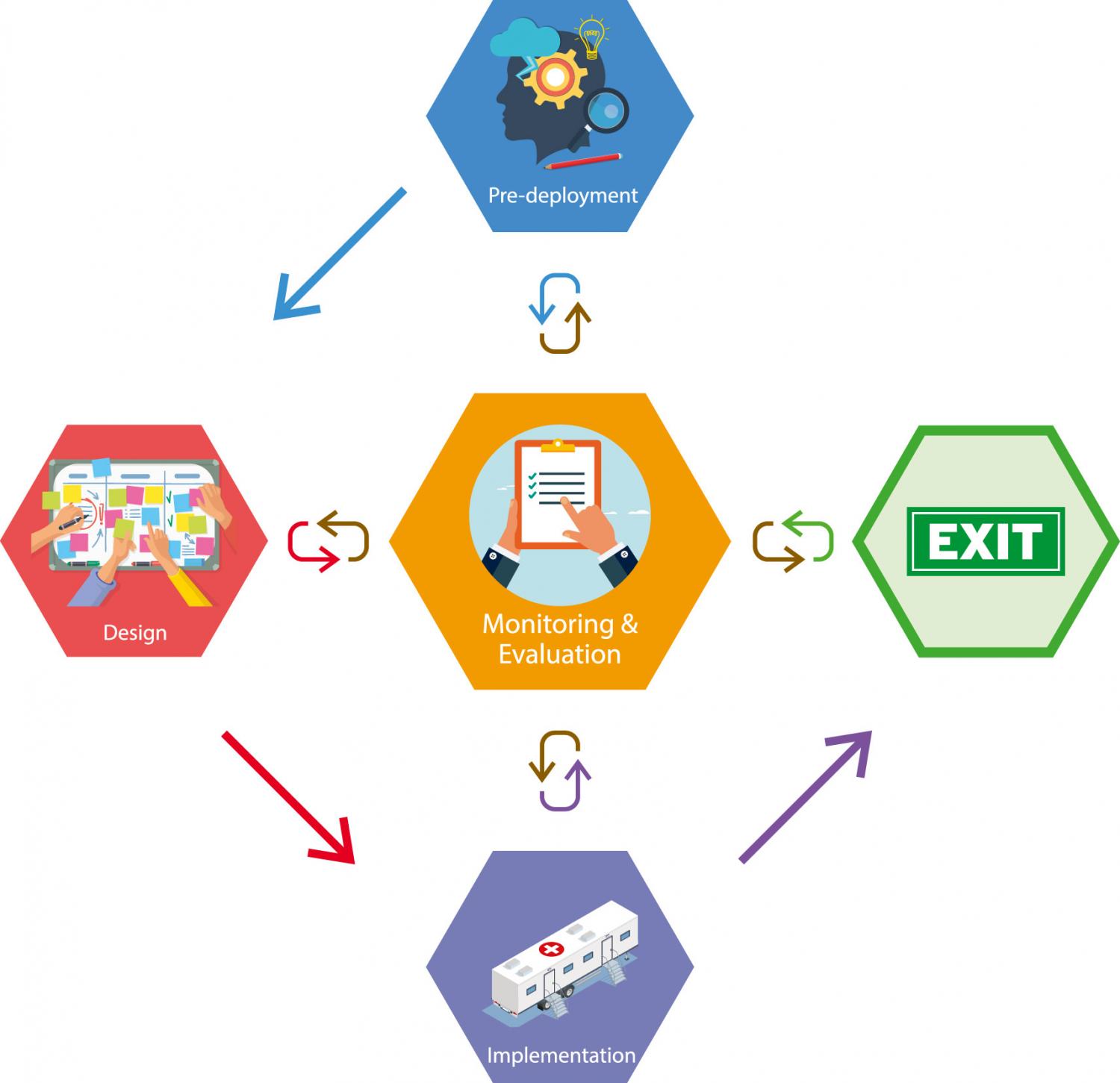
Mobile Health Units (MHUs) have been implemented to deliver medical care to Internally Displaced Persons in Northwest (NW) Syria. Despite the popular use of MHUs in humanitarian emergencies, few guidelines are available for their design and implementation with notably limited gender considerations. This study, therefore, aimed to elucidate the process of designing and implementing MHUs within humanitarian contexts by identifying and reviewing existing guidelines, describing how MHUs were mobilised within NW Syria, including key challenges identified and highlighting areas where gender considerations are necessary to improve service delivery. A holistic, single-case study was used with MHU as the unit of analysis. Existing MHU guidelines were identified and systematically compared to extract their key components, complemented by qualitative interviews with key informants responsible for MHU mobilisation in NW Syria. Data was analysed using thematic analysis. Study findings suggest that MHU deployment is best described as a cyclical process spanning the phases of pre-deployment, design, implementation, and feedback, with the latter central to inform service delivery across all previous phases. Factoring impacting MHU mobilisation in NW Syria were discrepancies in supply and demand, varying acceptability of MHUs, and tensions between stakeholders. Areas for gender considerations in MHU mobilisation include clinic design, staff recruitment, services offered, accessibility, needs assessments, and travel routes. This study makes two contributions to the existing literature. First, it presents a theoretical framework applicable to the design and implementation of MHUs in conflict states. Second, it highlights the importance of nuanced gender considerations in MHU mobilisation within humanitarian settings.
